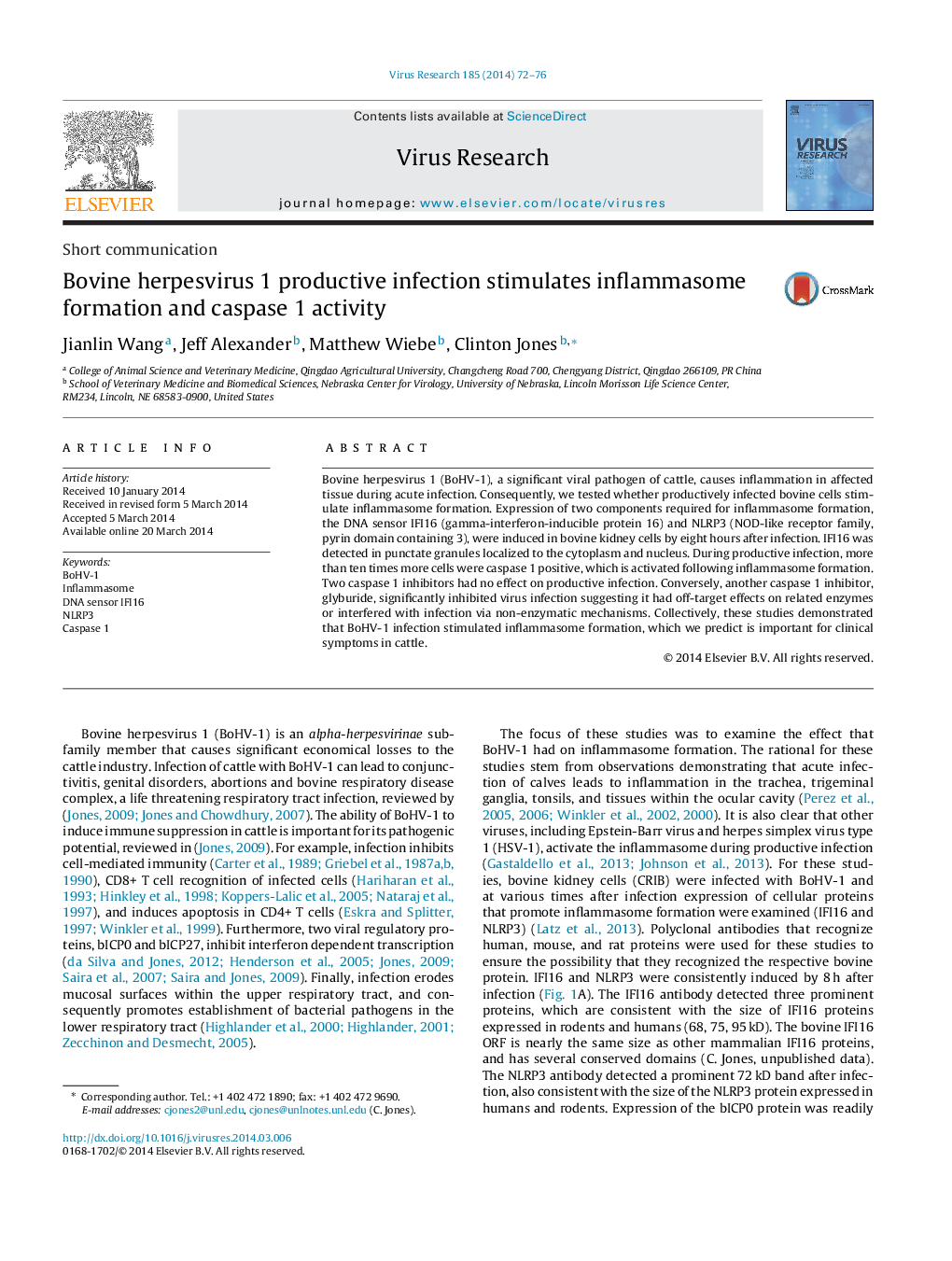| Article ID | Journal | Published Year | Pages | File Type |
|---|---|---|---|---|
| 3428454 | Virus Research | 2014 | 5 Pages |
•Bovine herpesvirus 1 stimulates inflammasome formation during productive infection.•The cellular DNA sensor, IFI16, is induced and localizes primarily to the cytoplasm after infection.•Caspase 1 activity is induced following infection of cultured cells.•Inhibiting caspase 1 does not have a dramatic effect on virus growth in cultured cells.
Bovine herpesvirus 1 (BoHV-1), a significant viral pathogen of cattle, causes inflammation in affected tissue during acute infection. Consequently, we tested whether productively infected bovine cells stimulate inflammasome formation. Expression of two components required for inflammasome formation, the DNA sensor IFI16 (gamma-interferon-inducible protein 16) and NLRP3 (NOD-like receptor family, pyrin domain containing 3), were induced in bovine kidney cells by eight hours after infection. IFI16 was detected in punctate granules localized to the cytoplasm and nucleus. During productive infection, more than ten times more cells were caspase 1 positive, which is activated following inflammasome formation. Two caspase 1 inhibitors had no effect on productive infection. Conversely, another caspase 1 inhibitor, glyburide, significantly inhibited virus infection suggesting it had off-target effects on related enzymes or interfered with infection via non-enzymatic mechanisms. Collectively, these studies demonstrated that BoHV-1 infection stimulated inflammasome formation, which we predict is important for clinical symptoms in cattle.
